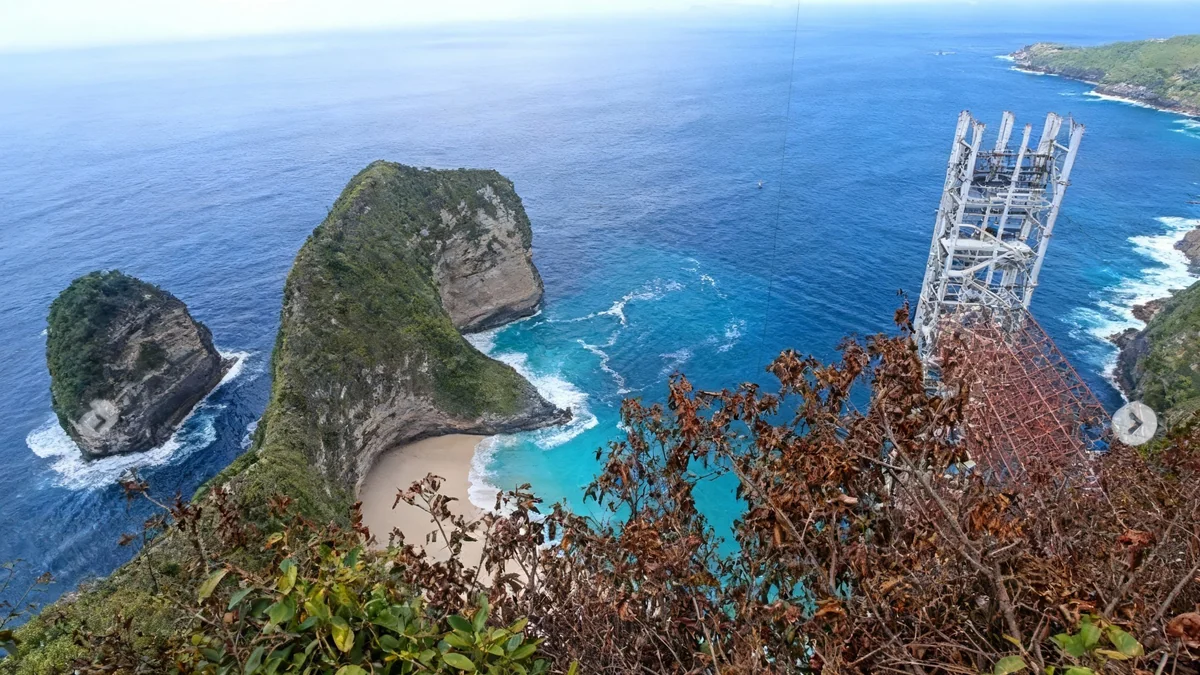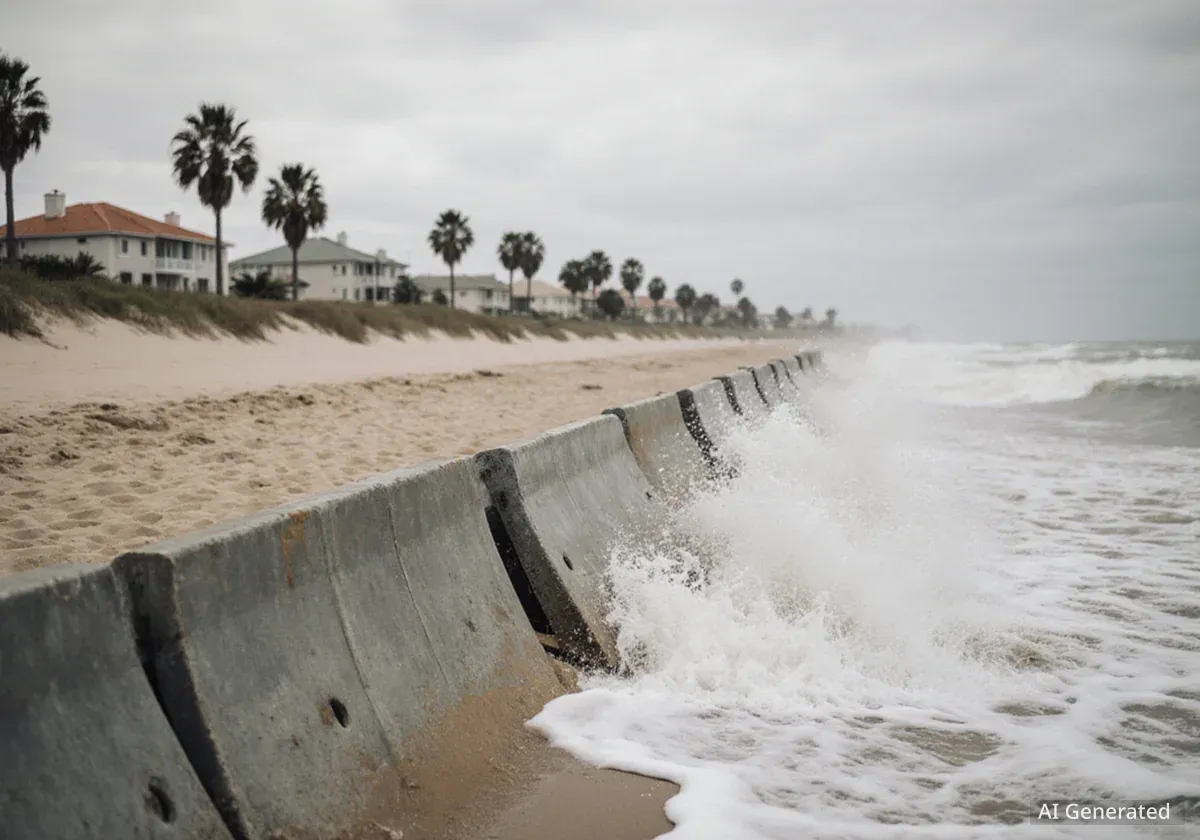Bali authorities have halted the construction of a 182-meter (597-foot) cliffside glass lift at Kelingking Beach on Nusa Penida. The project, intended to improve access for visitors, faced significant public outcry and was found to lack necessary permits. This decision comes after widespread concerns about environmental damage and the destruction of the area's natural beauty.
Key Takeaways
- Construction of the Kelingking Beach glass lift has been suspended.
- The project lacked required permits and sparked environmental concerns.
- Locals and tourists criticized the lift for destroying the natural landscape.
- The lift was meant to shorten the difficult hike to the beach.
- Concerns also arose about increased safety risks due to easier beach access.
Outcry Over Environmental Impact and Aesthetics
Photographs showing the initial lift shafts cutting into the iconic 'T-Rex cliff' at Kelingking Beach quickly went viral across social media platforms. The images triggered strong negative reactions from both residents and tourists. Many expressed anger, stating the project would destroy the area's unique natural beauty and potentially accelerate erosion of the cliff face.
Local resident Made Sediana voiced his disappointment to the Bali Sun newspaper, stating,
"It's a shame that the beautiful view of Kelingking Beach has been destroyed by the lift project. Tourists come to Nusa Penida to enjoy the beautiful panorama, not the lifts."This sentiment was echoed by many online commentators who emphasized that visitors seek Bali's natural environment, not more modern infrastructure.
Project Cost and Dimensions
- Height: 182 meters (597 feet)
- Developer: China Kaishi Group
- Estimated Cost: $12 million (£5.8 million)
Permit Issues and Political Opposition
Investigations by local authorities revealed that the glass lift project did not secure the necessary construction permits. This lack of official approval played a crucial role in the decision to suspend the work. Bali senator Niluh Djelantik had been a vocal opponent of the project, citing significant risks even before construction began.
In a public statement on Facebook, Senator Djelantik warned,
"Long before this lift was built, we had already voiced our opposition. The risks are too great. Enjoy Bali's beauty wisely; don't create access that seems to be leading tourists to the gates of disaster."Her remarks came just a day before the official suspension announcement.
Access Challenges and Safety Concerns
Currently, reaching Kelingking Beach requires a challenging hike down a steep trail. The descent typically takes between 45 and 60 minutes, while the return climb up the cliff can extend to two hours. Proponents of the lift argued it would make the beach more accessible, especially for those unable to navigate the difficult path.
However, many locals suggested that authorities should focus on repairing and improving the existing stairs rather than investing in what they called 'vanity projects'. There were also concerns that making the beach easier to reach could lead to an increase in swimming accidents. Kelingking Beach is known for its narrow coastline and powerful waves, making swimming unsafe. Despite warnings, many visitors ignore these restrictions, leading to a history of injuries and fatalities.
Kelingking Beach: A Natural Wonder
Kelingking Beach, often nicknamed 'T-Rex cliff' due to its unique rock formation resembling a dinosaur, is one of Bali's most iconic and photographed locations. Located on Nusa Penida island, it draws thousands of tourists annually for its breathtaking panoramic views and pristine waters. The area is celebrated for its rugged, untouched natural environment.
Future of the Project Remains Uncertain
The duration of the suspension remains unclear. Authorities have not yet specified if the project will be permanently canceled or if the developer can resume work once all permits are secured and environmental concerns are addressed. The decision highlights a growing tension in Bali between tourism development and the preservation of its natural landscapes.
This incident also reflects a broader trend of increasing Chinese investments in Bali's infrastructure and tourism sector. For example, the Chinese firm ChangYe Construction Group has reportedly invested $3 billion in a joint venture with PT BIBU Panji Sakti to build Bali's second airport. As development continues, balancing economic growth with environmental protection and local sentiment remains a critical challenge for the island.
- The suspension is temporary, but its length is unknown.
- Many hope for a focus on sustainable tourism practices.
- The incident underscores the importance of proper permitting and community engagement.





